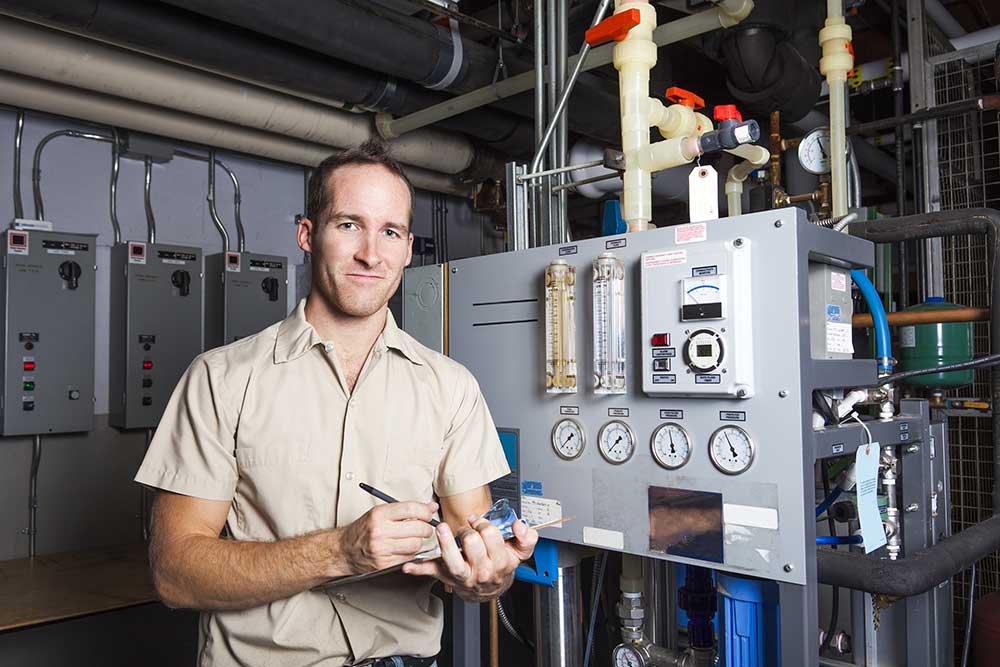Disclaimer: The information on our website is provided for general information purposes only. We make no representations or warranties of any kind, express or implied, about the completeness, accuracy, reliability, suitability or availability with respect to the website or the information contained on our website for any purpose. Any reliance on such information is therefore strictly at your own risk and we are not liable for any damages or losses arising out of or resulting from your reliance on any information contained on our website.
An energy auditor uses their expertise in construction, electronics, and energy conservation to improve energy consumption. Additionally, they investigate ways a building may be using more energy than necessary and craft detailed reports on opportunities for improvement. In fact, this can save businesses and people a lot of money. Watch this video to find out what a Energy Auditor does:
How to Become an Energy Auditor

Employers would like to see some formal training along with experience. Certifications, formal education, and job experience in construction and electrical engineering are solid backgrounds to have when becoming an energy auditor. The Association of Energy Engineers also offers the ability to become a Certified Energy Auditor. To become certified, you must blend formal education and experience. For example, those with an unrelated 4-year degree must show more than 4 years of related experience.
Those with an associate’s degree must demonstrate they have 5 years of related experience. When seeking college courses focus on building construction and inspection, energy-saving techniques, and construction insulation. In addition, one must be decisive, communicate well, and have the ability to problem-solve with critical thinking and resolutions.
Job Description of an Energy Auditor
Energy auditors go into a business and home and look for ways to improve energy consumption of the building or its systems. Additionally, they evaluate various system operations and how a building is constructed to determine what is contributing to energy production. Therefore, they must communicate and document areas of concern where energy consumption can improve and educate their clients on energy saving. These auditors may even recommend additional energy-saving systems with an initial cost investment to the buyer but reduce cost in the long run.
Their work environment can vary, but more often than indoors, they may find themselves in small spaces and may need to crawl or bend to get to difficult locations to inspect. Hours can vary, and some weekends are required pending on their clients’ schedules. It can sometimes be physically demanding; therefore, one should have physical endurance and be fit.
Benefits of Becoming an Energy Auditor
There are several benefits of being an Energy Auditor, and many suggest that one of the most important to them is helping people and industries save money by saving energy. Can you imagine how many companies and industries are out there that need help saving energy? Energy Auditors have plenty of travel opportunities as they visit different clients everywhere. They enjoy meeting new people and using their skills to solve the challenges of each problem. There is lots of variety in their day! They benefit from instant gratification by seeing the results of their work.
Energy Auditor Career Video Transcript
When home and building energy usage is on the rise, Energy Auditors help bring it down. Energy auditors often begin by inspecting homes or commercial buildings to measure heat, cooling, electrical and gas usage. They use thermal infrared cameras to find energy leaks, and blower-door tests to measure the airtightness of a structure. The next step is often to meet with building managers or home owners to determine how to improve energy efficiency and reduce costs. This requires extensive knowledge of efficient practices and excellent communication skills.
Physical fitness is important for this career, since energy auditors spend much of the day on their feet, and may find themselves anywhere from rooftops to attics and tight crawl spaces when looking for the weaknesses in a building’s insulation. A variety of groups hire energy auditors, from utility companies to construction and engineering firms.
Many experienced energy auditors choose self-employment to work on their own schedule. Some states require energy auditors to become certified. Many auditors learn through up to three years of on-the-job training. Energy auditors are on the front lines to combat energy waste and help consumers save money. They make a great impact on the environment and on your energy bill.
Article Citations
National Center for O*NET Development. 13-1199.01. O*NET OnLine.
U.S. Department of Energy. Professional Home Energy Audits.The career video is Public Domain from the U. S. Department of Labor, Employment and Training Administration.

